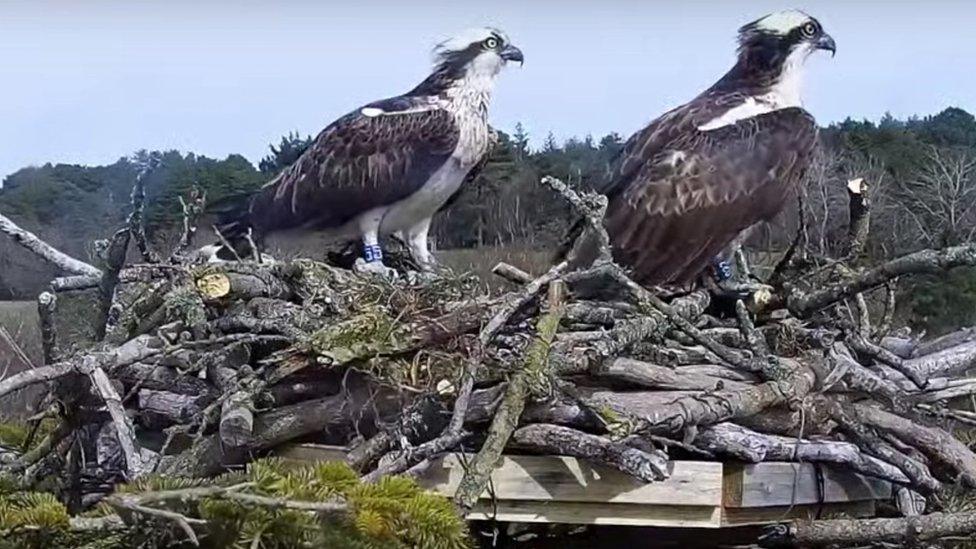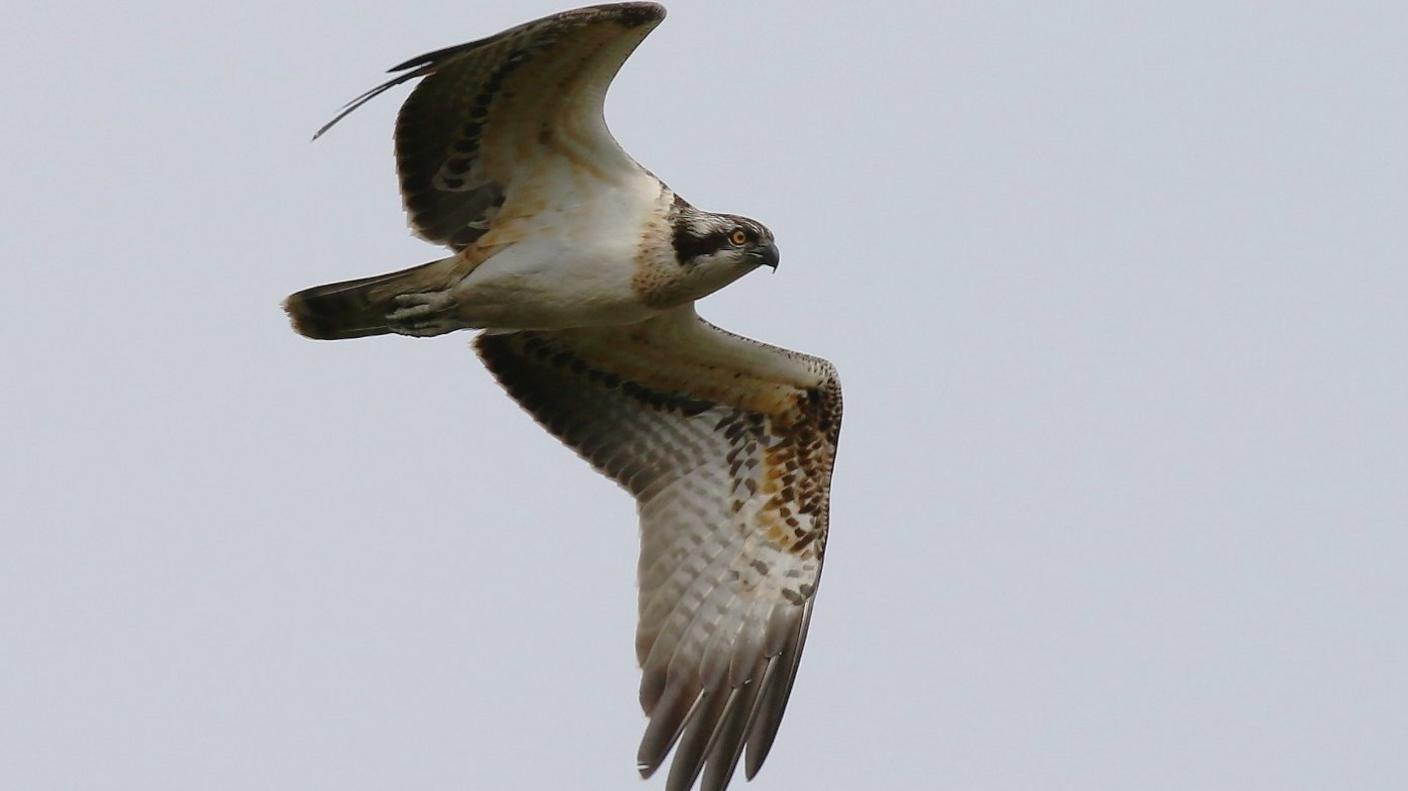Poole Harbour: First osprey hatches on south coast in 200 years
- Published
The footage of CJ7 feeding the chick was described as a "magical moment"
An osprey chick has hatched in a nest on the south coast of England for the first time in more than two centuries.
A reintroduction programme began in Poole Harbour in 2017 with the aim of establishing a breeding population.
The Birds of Poole Harbour charity captured footage of a female osprey, known as CJ7, feeding the chick, and described it as a "magical moment".
Paul Morton, from the charity, said: "Words don't even begin to describe what this means to us."
He added: "The prospect of actually having wild hatched chicks in a nest always felt so far away.
"But here we are, with an official birthday... and we now have the first wild osprey chick for southern Britain in 200 years, right here in Poole Harbour."
The hatching was first confirmed when CJ7 was seen moving a half-egg shell around the nest. Previously she and her mate were described as "fidgety" and repeatedly "pacing around".
Project manager Brittany Maxted tweeted, external: "A very proud moment! So many years of hard work. So many dedicated colleagues. So many highs and lows.
"And finally... the first osprey chick to hatch in Southern England since 1847!"

CJ7 (left) and 022 first met last summer
The pair first met last summer, although the male was too young to breed.
When news of an egg in the nest emerged, TV naturalist Chris Packham said it was a "sensational" development.
The fish-eating birds of prey historically bred across the British Isles but populations drastically declined in the Middle Ages.
In 2017, Birds of Poole Harbour and the Roy Dennis Wildlife Foundation began transferring six-week-old chicks from sustainable populations in Scotland.
In a statement Birds of Poole Harbour said: "If humans hadn't got rid of ospreys in the first place, we wouldn't have even needed to do a reintroduction.
"Now these birds are back, and successfully breeding, we hope that they can continue to build in strength as a population here on the south coast and be enjoyed by generations to come."

Follow BBC South on Facebook, external, Twitter, external, or Instagram, external. Send your story ideas to south.newsonline@bbc.co.uk, external.
- Published29 April 2022

- Published20 June 2017
